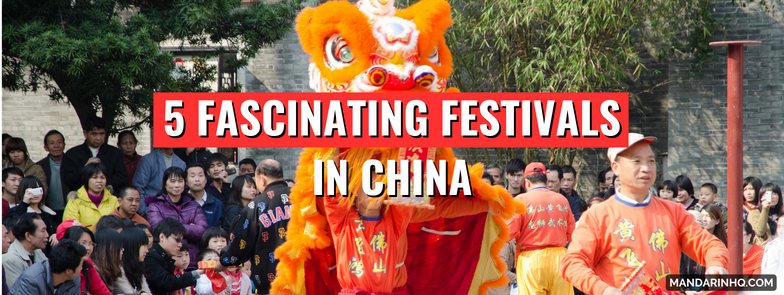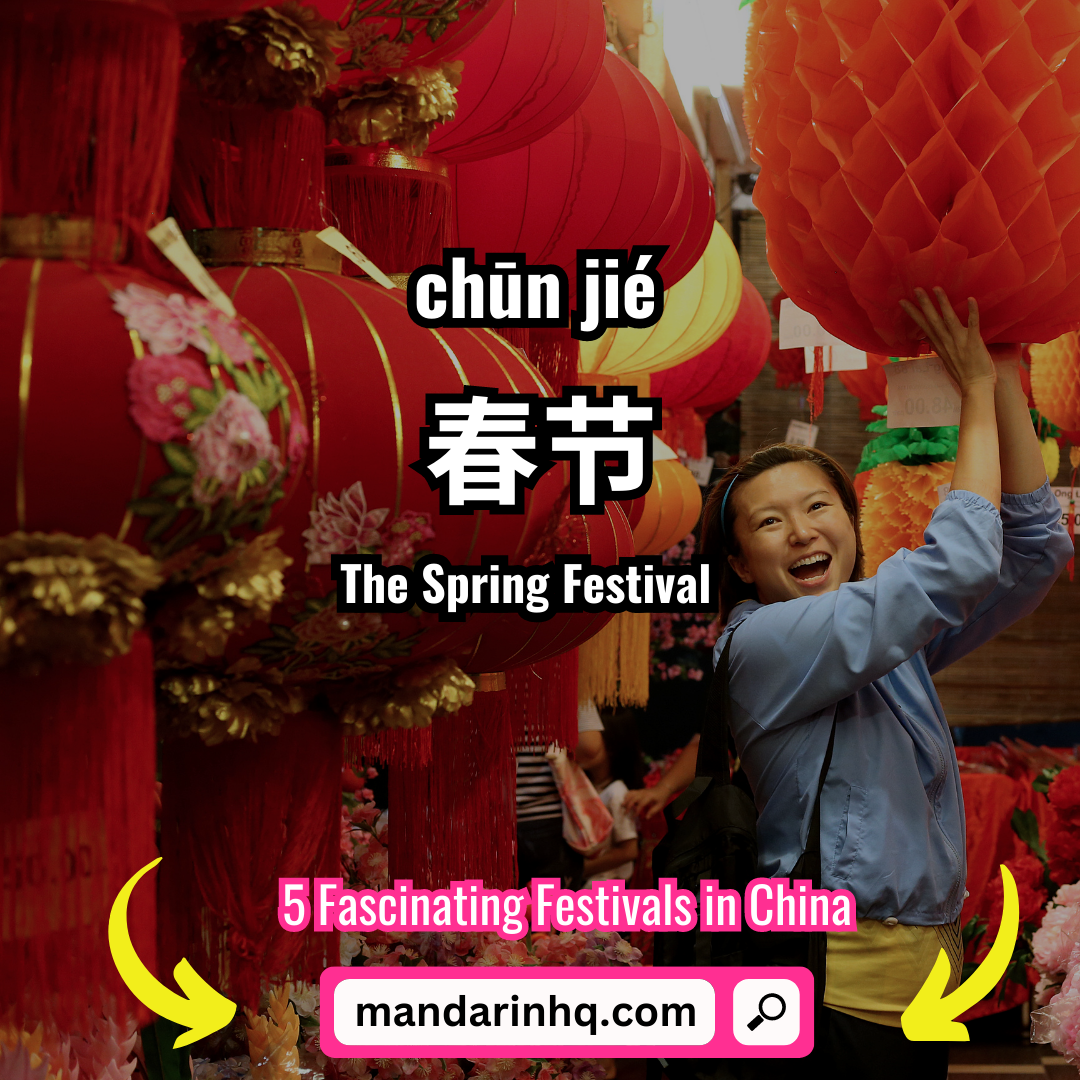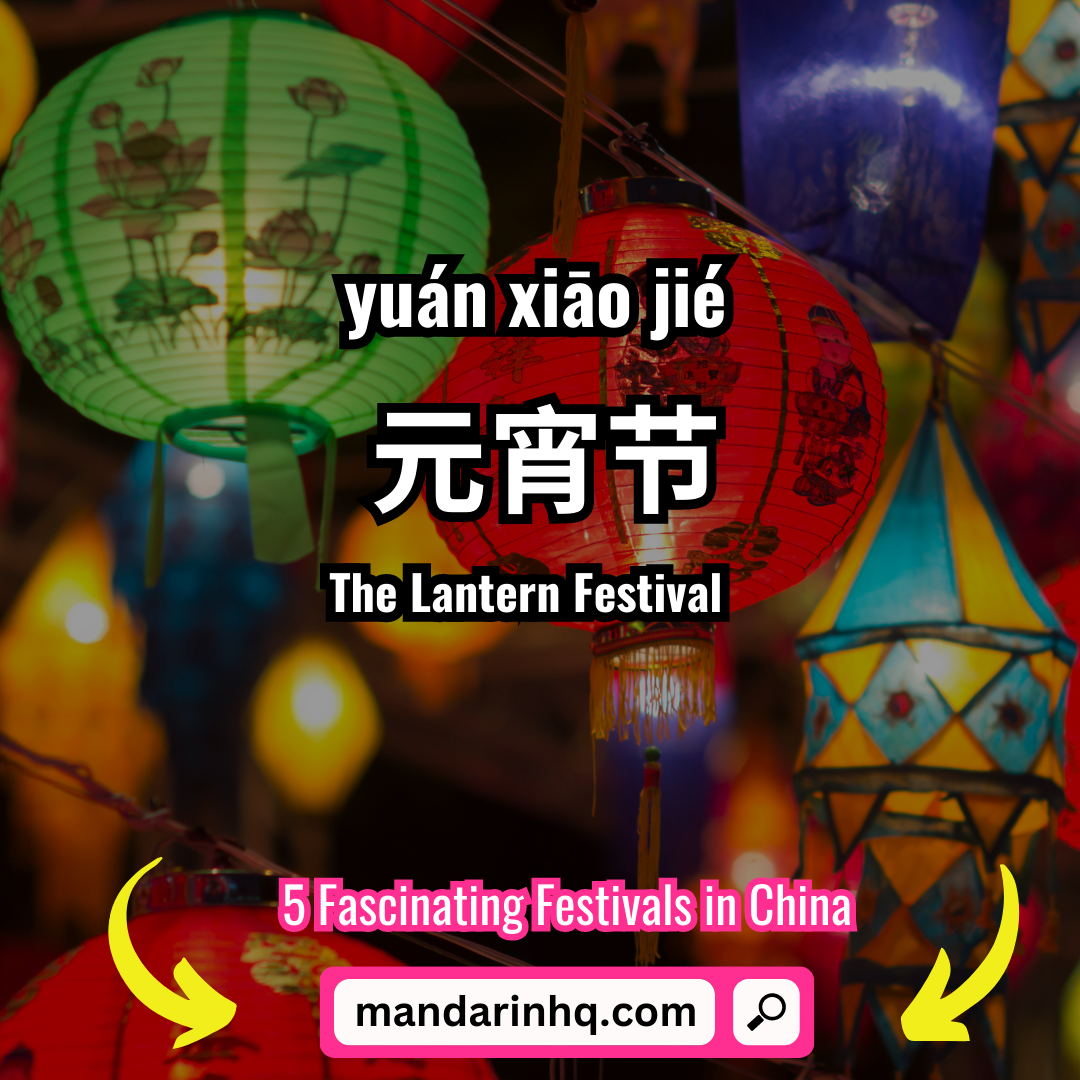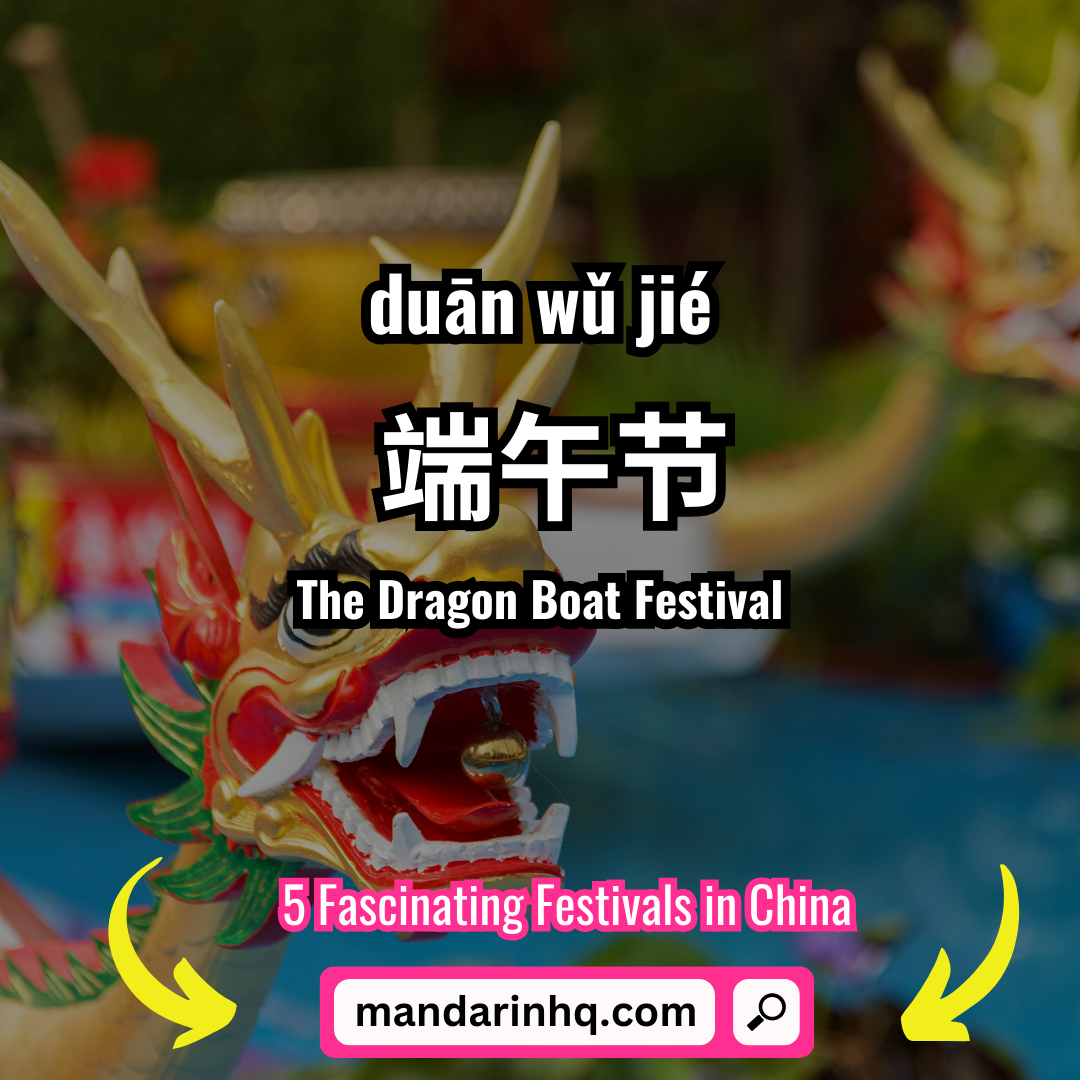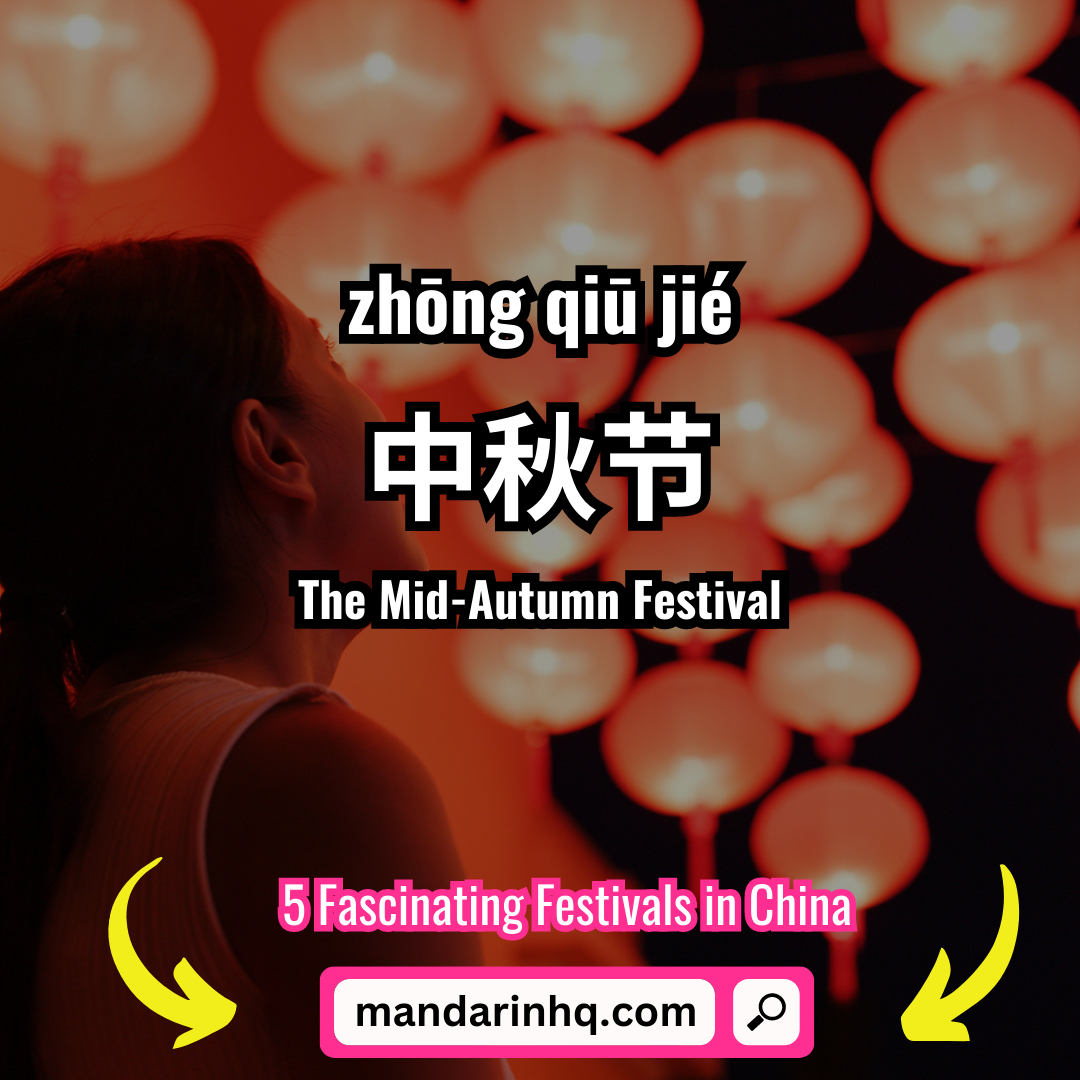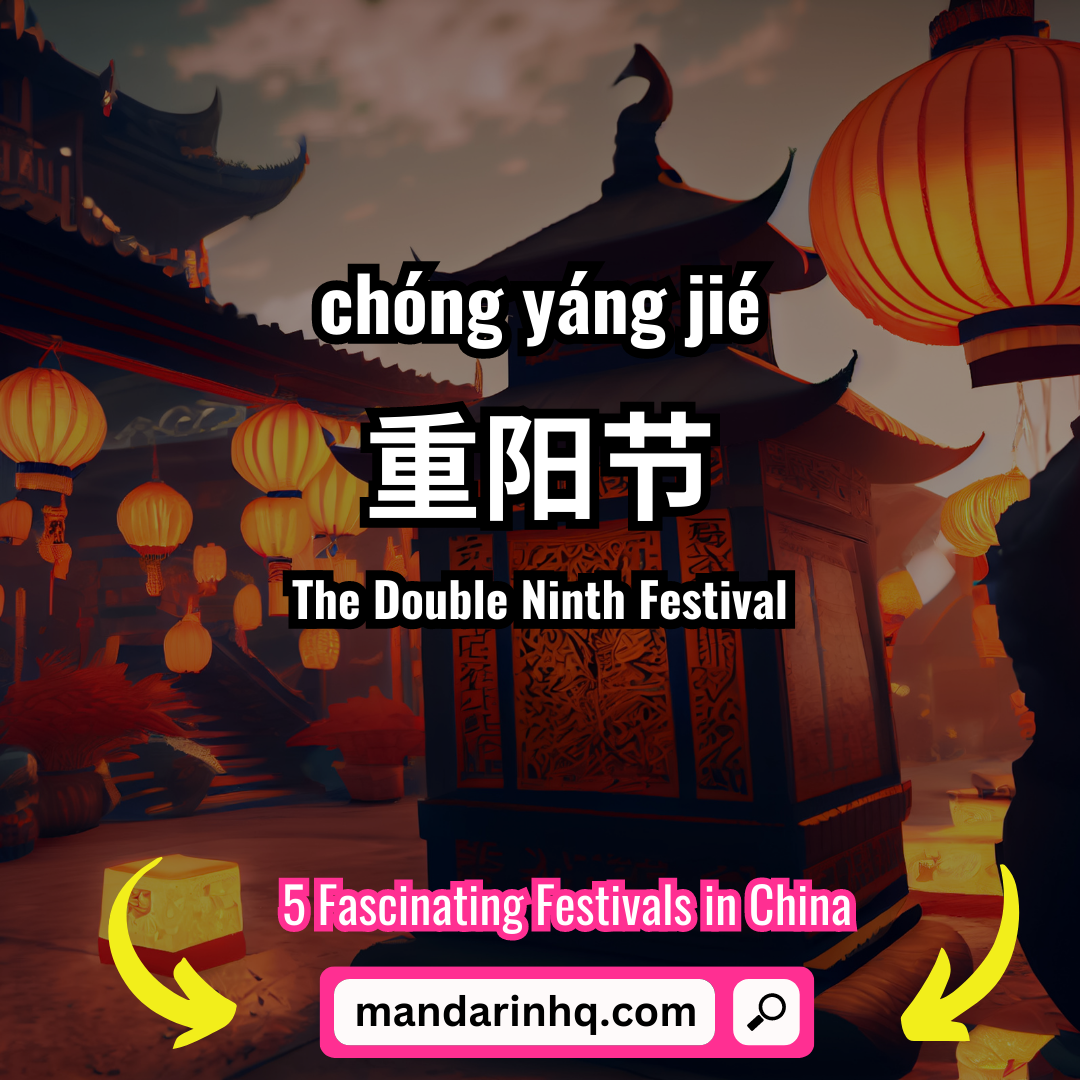In today's video, we're going to delve into the captivating realm of traditional Chinese festivals.
Join me as we uncover the rich history, unique customs, and vibrant celebrations that define some of the most significant festivals in Chinese culture.
Enjoyed This Lesson?
Join my free newsletter to get regular tips & updates to help you learn Mandarin.
No spam. See privacy policy here.
5 Fascinating Festivals in China: A Glimpse into Ancient Traditions and Celebrations
First up is The Spring Festival, 春节 chūn jié
The Spring Festival is also known as Chinese New Year. This is the most important festival in Chinese culture, marking the beginning of the lunar new year. Families come together to celebrate with food, fireworks, and various customs to bring good luck and fortune for the year ahead. One popular tradition is giving “红包 hóng bāo” (red envelopes) filled with money to children and unmarried adults.
The Second festival is The Lantern Festival, 元宵节 yuán xiāo jié
The Lantern Festival takes place on the 15th day of the first lunar month, marking the end of the Spring Festival celebrations. During this festival, people light colorful lanterns, solve riddles, and enjoy sweet rice dumplings called "汤圆 tāng yuán". The lanterns symbolize the hope for a bright and prosperous year ahead.
The third festival is The Dragon Boat Festival, 端午节 duān wǔ jié
The Dragon Boat Festival, also known as “端午节 duān wǔ jié”, is celebrated on the fifth day of the fifth lunar month. This festival commemorates the ancient Chinese poet “屈原 qū yuán”. The main activities include dragon boat races and eating “粽子 zòng zi”, a type of sticky rice dumpling wrapped in bamboo leaves.
The fourth festival is The Mid-Autumn Festival, 中秋节 zhōng qiū jié
The Mid-Autumn Festival is celebrated on the 15th day of the eighth lunar month. It’s a time for family reunions and appreciating the full moon. Mooncakes, a sweet pastry filled with various fillings, are the traditional food of this festival. People also light lanterns and enjoy the beautiful moonlit night.
Lastly, we have The Double Ninth Festival, 重阳节 chóng yáng jié
The Double Ninth Festival, 重阳节 chóng yáng jié which takes place on the ninth day of the ninth lunar month. This festival is associated with climbing mountains, appreciating chrysanthemum flowers, and drinking wine. It's a time to pay respect to ancestors and promote .
And there you have it! 5 Chinese festivals that showcase the history and culture of China. If you enjoyed learning about these celebrations and their customs, don't forget to like, comment, and subscribe for more exciting content on Chinese language and culture.
Enjoyed This Lesson?
Join my free newsletter to get regular tips & updates to help you learn Mandarin.
No spam. See privacy policy here.
You might also find these posts interesting:

